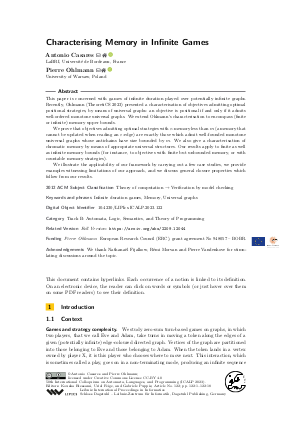LIPIcs.ICALP.2023.122.pdf
- Filesize: 1.13 MB
- 18 pages

 Creative Commons Attribution 4.0 International license
Creative Commons Attribution 4.0 International license




Feedback for Dagstuhl Publishing